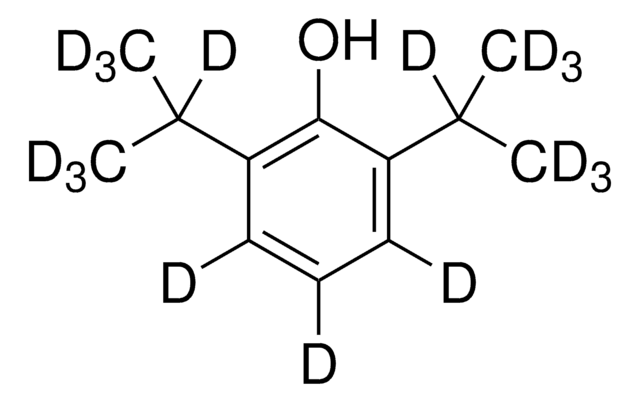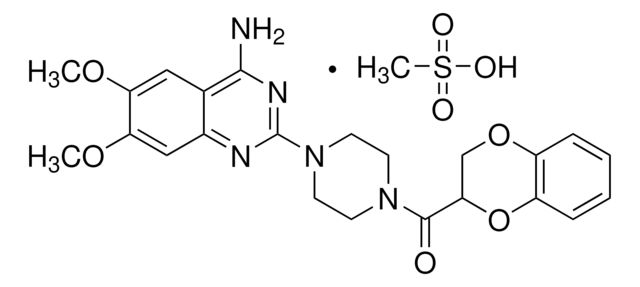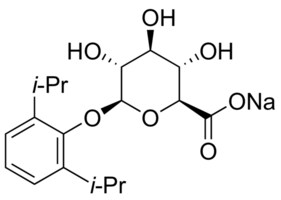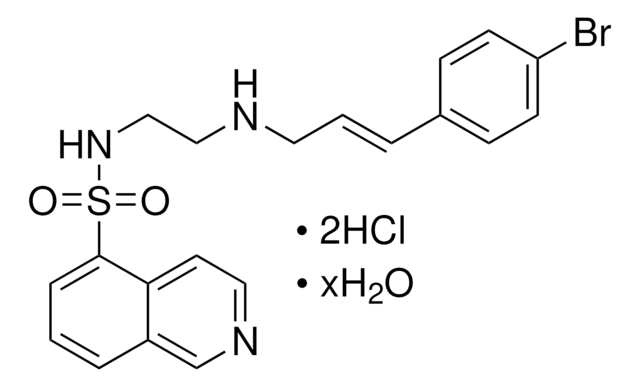1096622
USP
Carvedilol
United States Pharmacopeia (USP) Reference Standard
Synonym(s):
1-(9H-Carbazol-4-yloxy)-3-[[2-(2-methoxyphenoxy)ethyl]amino]-2-propanol, BM-14190
About This Item
Recommended Products
grade
pharmaceutical primary standard
API family
carvedilol
manufacturer/tradename
USP
application(s)
pharmaceutical (small molecule)
format
neat
SMILES string
OC(COC1=CC=CC2=C1C3=C(C=CC=C3)N2)CNCCOC4=CC=CC=C4OC
InChI
1S/C24H26N2O4/c1-28-21-10-4-5-11-22(21)29-14-13-25-15-17(27)16-30-23-12-6-9-20-24(23)18-7-2-3-8-19(18)26-20/h2-12,17,25-27H,13-16H2,1H3
InChI key
OGHNVEJMJSYVRP-UHFFFAOYSA-N
Gene Information
human ... ADRA1A(148) , ADRA1B(147) , ADRA1D(146) , ADRB1(153) , ADRB2(154) , ADRB3(155)
Looking for similar products? Visit Product Comparison Guide
General description
Application
Biochem/physiol Actions
Analysis Note
Other Notes
related product
Signal Word
Warning
Hazard Statements
Precautionary Statements
Hazard Classifications
Aquatic Chronic 2 - STOT RE 2
Target Organs
Liver,spleen,Uterus (including cervix),Adrenal gland
Storage Class Code
11 - Combustible Solids
WGK
WGK 3
Flash Point(F)
Not applicable
Flash Point(C)
Not applicable
Certificates of Analysis (COA)
Search for Certificates of Analysis (COA) by entering the products Lot/Batch Number. Lot and Batch Numbers can be found on a product’s label following the words ‘Lot’ or ‘Batch’.
Already Own This Product?
Find documentation for the products that you have recently purchased in the Document Library.
Our team of scientists has experience in all areas of research including Life Science, Material Science, Chemical Synthesis, Chromatography, Analytical and many others.
Contact Technical Service






